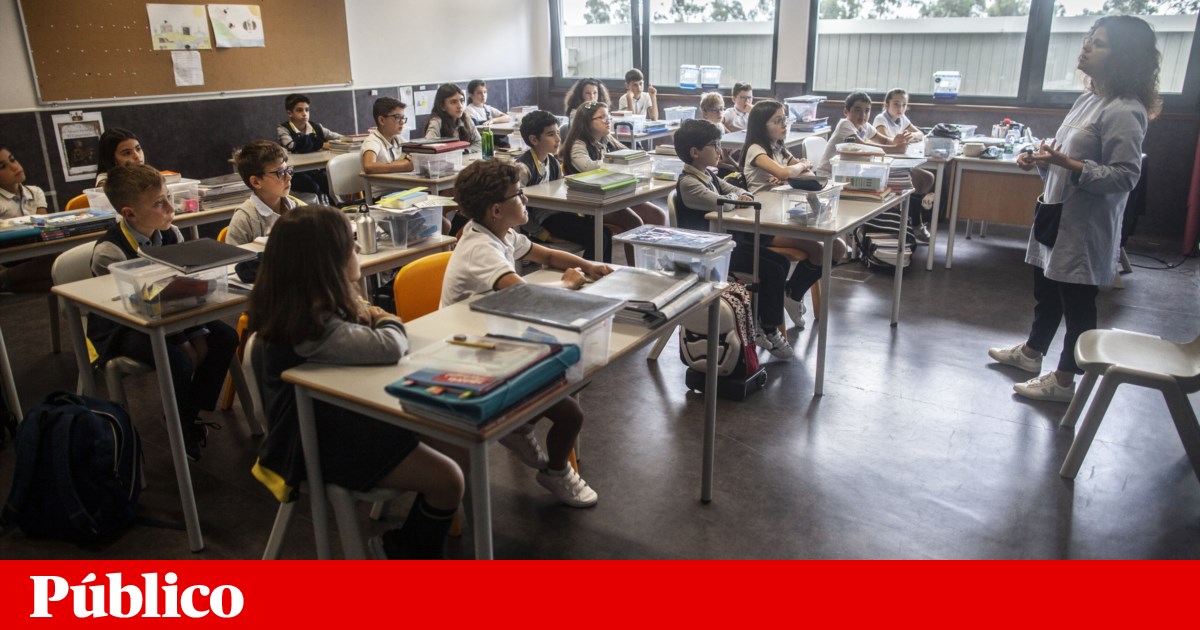The Ministry of Education and teachers’ unions are negotiating, this Friday, a review of teaching qualifications so that graduates after the Bologna reform can teach as well. Since almost nothing is clear when it comes to grammar teaching, here’s an explanation of what rules apply and what can be changed.
Who can be appointed as a primary and secondary teacher?
Except where applicable legislation describes it as “exceptional”, only those with a master’s degree conferred by a master’s degree in teaching may be employed. It is this qualification that confers the so-called “professional qualification” which as of 2007 became a “requirement for the exercise of the teaching function”. This rule was adopted after the Bologna Reform which, among other changes, shortened the term of degrees from five to three years.
What are the requirements for obtaining a master’s degree in teaching?
As with all master’s degrees, the prerequisite is a bachelor’s degree or equivalent qualification. But this training must meet the specific requirements for the award of a master’s degree in teaching. Some examples: To teach in the first cycle, it is necessary to have a certificate in basic education to reach the respective master’s degree; In order to teach Portuguese in the third and secondary cycle, it is necessary that the degree completed has 120 credits in the field, which is the minimum required for a master’s degree in teaching this subject, etc. Essentially, these requirements have remained unchanged since 2014, but the government is now changing them to expand the pool of candidates for teachers.
Can a graduate not teach basic and secondary education?
You can, but only in accordance with applicable legislation in exceptional cases. More specifically, where no professionally qualified candidates are available, schools may resort to hiring teachers only The so-called “special license” That is, they only hold a degree. Until now, this possibility was reserved for pre-Bologna graduates, but for the following academic year the government extended this “exception” to post-Bologna graduates. This change was implemented through the Budget Implementation Law Decree ratified this month, and the terms of its implementation are being negotiated with unions, which are the required requirements in addition to a certain degree. Only candidates with their qualifications will continue to be employed for the duration of direct recruitment by the schools.
What is school employment?
It is a teacher recruitment mechanism that remains in place throughout the school year and is intended to replace staff professors who are on sick leave. In this competition, candidates respond directly to advertisements published by schools, and their appointment is not subject to professional graduation, which is mainly calculated on the basis of length of service. In national competitions, candidates are placed according to their professional grade and preferences expressed in the application.
What will change in hiring teachers?
The first immediate change will be the possibility of hiring candidates With degrees after Bologna. The additional requirements that they will have to comply with on Friday are being negotiated in the unions and, according to the proposal from the government, they differ slightly from the conditions set for access to a master’s in teaching through the legal system for professional qualification for teaching. From 2014 some of the changes proposed by the Ministry of Education include reducing the number of credits required to teach Portuguese and English. And also to broaden the range of degree holders in the fields of History, Geography, Portuguese, Mathematics and Science the possibility of teaching in the second cycle.
There are other changes in the pipeline, which also include changes to the requirements for initial teacher training (bachelor’s/master’s degree in teaching) and the form for placement competitions, which will begin to be negotiated in September and will not take effect in this academic year.

“Hardcore alcohol maven. Hipster-friendly analyst. Introvert. Devoted social media advocate.”

